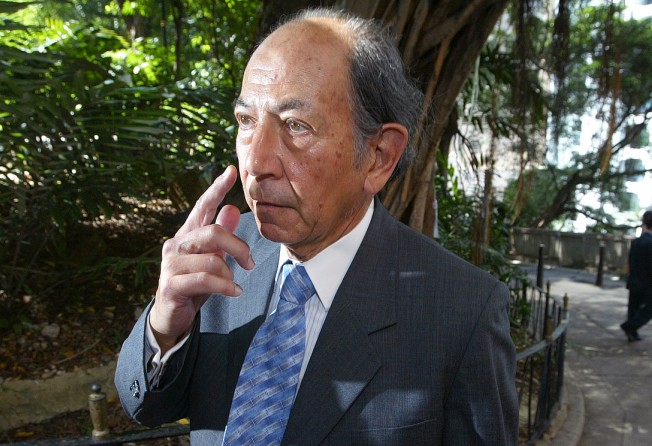Top court judge questions 'odd' injunction

A top court judge has questioned the "curious" handling of applications for injunctions to clear the Occupy protest site in Mong Kok, and described the orders themselves as "extremely odd".
Speaking in a personal capacity, Mr Justice Henry Litton, a non-permanent judge of the Court of Final Appeal, also questioned why the government did not take over the lawsuit, initiated by taxi and bus operators.
The Court of First Instance on Monday renewed a temporary injunction granted three weeks earlier against pro-democracy protesters in Nathan Road.
In a rare speech on Occupy and rule-of-law issues at the University of Hong Kong yesterday, Litton said: "A civil court process was being invoked for what I feel is a public order issue."
He was "intrigued" by the actions and the fact the case was first heard on an ex parte basis, meaning the party affected was not present to defend the action.
"The process of going to a court to seek an order behind the back of a person to be affected by the order is a most drastic remedy, because the unvarying principle of common law is no one's interest should be affected without having been given an opportunity to be heard."
Only an urgent situation would justify an ex parte hearing, he added, and he questioned what the urgency was.
To find out, the judge visited Mong Kok on a rainy day. He eventually found the court order, soaked, in a plastic container. It was written only in English and was "not easily legible".
He noted that the order said nothing about how the plaintiffs would clear the site - whether bulldozers or dump trucks would be used, for example - which made it "an extremely odd order". He wondered how the plaintiffs had satisfied the court that they could execute the order, given that "anything less would demean the rule of law".
Given their insistence on urgency, Litton said he was "mystified" as to why the plaintiffs had not acted immediately.
Litton then questioned the role of the secretary for justice, whom, he noted, had not exercised his right to take over the court action to enforce the rights of the public. Instead, the court had authorised police to assist bailiffs in executing the order.
Professor Johannes Chan Man-mun, a former HKU law dean, shared Litton's views and criticised the government for "using a civil process to tackle … a public order issue". He questioned whether the plaintiffs had the "financial strength to pay the 7,000 police officers" media reports said were being mobilised.
The High Court will hold a hearing today to give directions to the parties, while some protesters will seek leave to appeal.
Litton said an injunction granted to the owners of an Admiralty tower was different, as it sought to protect property rights.